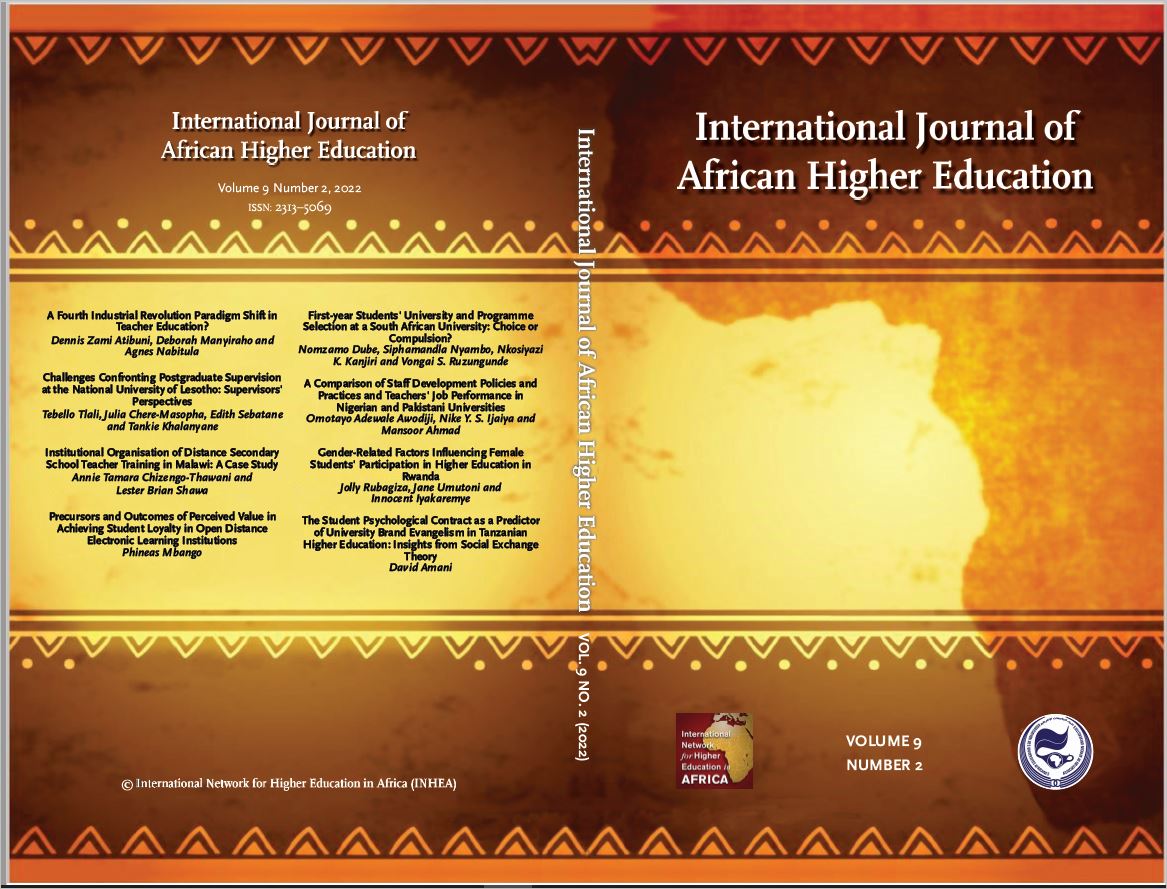First-year Students’ University and Programme Selection at a South African University:
Choice or Compulsion?
DOI:
https://doi.org/10.6017/ijahe.v9i2.15373Abstract
Higher education is a tool for social and economic development as well as global competitiveness. It is thus crucial for students to make informed decisions when enrolling at university and, ultimately, deciding what career to pursue. This article offers insights into the factors that influence students’ selection of a university and programme, focusing on students at a historically disadvantaged university in the Eastern Cape, South Africa. Data was gathered by means of qualitative focus groups and convenient sampling was employed to select the sample from a population of first-year students. The findings indicate that residential proximity to the university, the university’s reputation, programme image, entry requirements, affordability and funding influence university selection. With regard to programme selection, the factors considered include background dynamics, the subjects involved, failure to meet the requirements, family, peer or the influence of others, failure to be selected for first choice programmes, a lack of career guidance and funding availability. It was thus found that university selection was principally influenced by the student’s informed choice while programme selection was largely influenced by external factors.
Key words: University, programme, selection, students, higher education
Downloads
Published
How to Cite
Issue
Section
License
Copyright (c) 2022 Nomzamo Dube, Siphamandla Nyambo, Nkosiyazi K. Kanjiri, Vongai S. Ruzungunde

This work is licensed under a Creative Commons Attribution-NonCommercial-NoDerivatives 4.0 International License.

